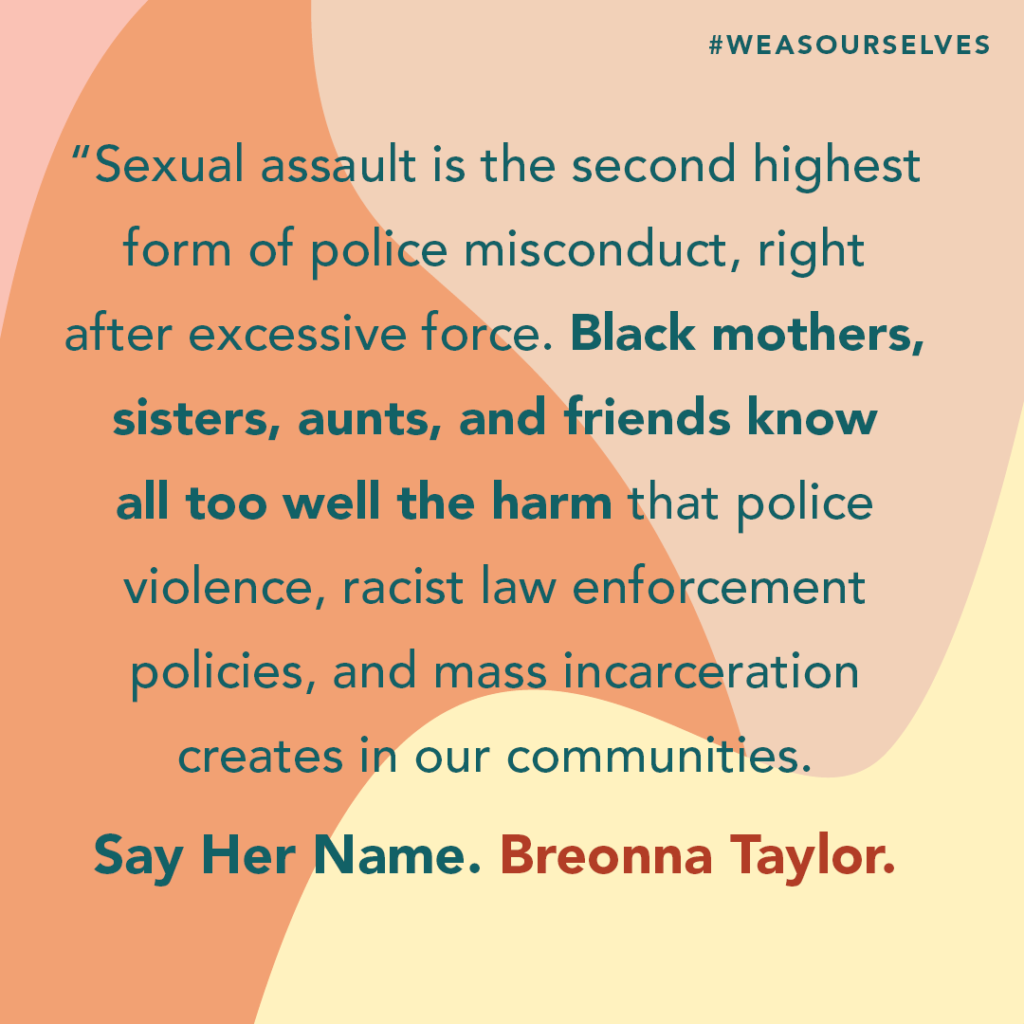Say Her Name.
This demand, coined by Kimberlé Crenshaw in 2016, rings louder than ever today as Black women continue to be made invisible within our societal response to violence.
We see this in the story of our sister Breonna Taylor, whose untimely death at the hands of the Louisville Metro Police Department one year ago was overlooked until the killing of George Floyd — which ignited national attention. And while Mr. Floyd’s assailants have been charged, only one has made it to trial so far.
We also see this phenomenon in the tragic story of Oluwatoyin “Toyin” Salau, a young Black activist who was found dead after sharing her experience of sexual assault.
Incidences of sexual assault sit squarely within the issue of police brutality. Brett Hankison, one of the police officers involved in Breonna Taylor’s death, was charged with sexually assaulting two women.
This is not a coincidence, as we know that sexual assault is the second highest form of police misconduct, right after excessive force. Black communities are not strangers to obstructions of justice and abuses of power at the hands of police. And when it comes to Black women and girls, law enforcement has established a history of vacillating between neglect and overaggressive policing, leaving us vulnerable to violation and erasure by the state and our own communities.
Sexual harassment and violence–like racism and discrimination–are all symptoms of oppressive power structures that threaten the safety and dignity of Black women. Led by organizations focused on this intractable issue, We, As Ourselves is a call to action to #SayHerName and stand alongside our sisters in the movement in the fight to end state-sanctioned violence and the disposal of the lives of black women and girls. The movement for Black lives is embedded in our movement to end sexual violence. As we take to the streets for justice, call on our leaders for accountability, and examine our own understanding of policing, we must remember to center Black women and Black survivors. Healing and justice for black survivors is the fight for our Black liberation.
Black women deserve justice. The time is here for us to own and shape our narratives, and for allies to show up for us in this work.
Say Her Name.

Leave a Reply